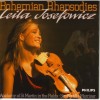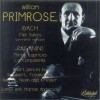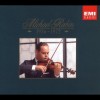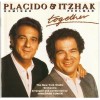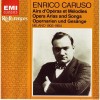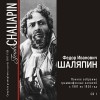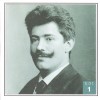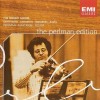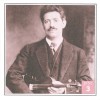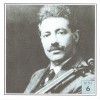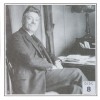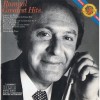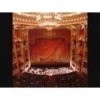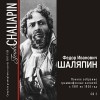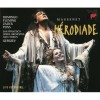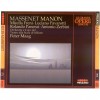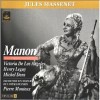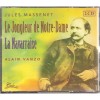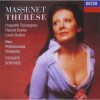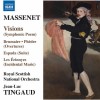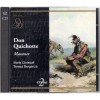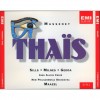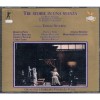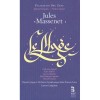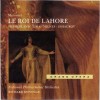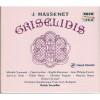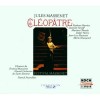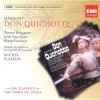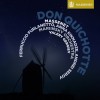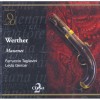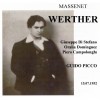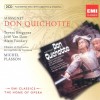Biography
Massenet was born in Montaud, then an outlying hamlet and now a part of the city of Saint-Étienne, in the Loire. When he was six, his family moved to Paris due to his father's ill-health. There, his mother (Adélaïde Massenet, née Royer; her husband's second wife) started taking piano pupils. She also taught Jules so well that at eleven he was able to enter the Paris Conservatoire. He was still a student when his family moved from Paris to Chambéry, but Jules returned to Paris after a few months, living with a married member of his father's family by his first wife. To support himself during his studies, he worked as timpanist for six years at the Théâtre Lyrique, playing also other percussion instruments in other theatres, and working as a pianist in the Café de Belleville.
Although, at first, some of his teachers had not predicted for him any career in music, this changed in 1862 when he won the Grand Prix de Rome with his cantata David Rizzio, and spent three years in Rome. There he met Franz Liszt, at whose request he gave piano lessons to the daughter of Mme. Sainte-Marie; within three years, his pupil became his wife.
His first opera La Grand' Tante was a one-act production at the Opéra-Comique in 1867. Nevertheless it was his dramatic oratorio Marie-Magdeleine (first performed in 1873) that won him praise from the likes of Tchaikovsky, Vincent d'Indy (who afterwards turned against him), and Charles Gounod. His real mentor, though, was the composer Ambroise Thomas, a man with important contacts in theatrical milieux. Another important early patron was his publisher, Georges Hartmann, whose connections with journalistic circles aided him in becoming better known during the difficult initial years of his composing activity. Even Massenet's marriage to Louise-Constance de Gressy (1866) helped him a great deal in social circles, which was important during this time.
Massenet took a break from his composing to serve as a soldier in the Franco-Prussian War, but returned to his art following the end of the conflict in 1871. From 1878 he was professor of composition at the Paris Conservatory where his pupils included Gustave Charpentier, Reynaldo Hahn and Charles Koechlin. His greatest successes were Manon in 1884, Werther in 1892, and Thaïs in 1894. Notable later operas were Le jongleur de Notre-Dame, produced in 1902, and Don Quichotte, produced in Monte Carlo 1910, with the legendary Russian bass Feodor Chaliapin in the title-role.
In 1876 he received the Légion d'honneur, and was appointed a Grand Officer in 1899. In 1878 he was elected a member of the Académie des Beaux-Arts, to the exclusion of Camille Saint-Saëns. He was only 36, the youngest member ever elected to the Académie.
In addition to his operas, Massenet composed concert suites, ballet music, oratorios and cantatas and about two hundred songs. Some of his non-vocal output has achieved widespread popularity, and is commonly performed: for example the Méditation from Thaïs, which is a violin solo with orchestra, as well as the Aragonaise, from his opera Le Cid and the Élégie for cello and orchestra (from his incidental music to Les Érinnyes). The latter two pieces are commonly played by piano students, and the Élégie became world famous in many arrangements.
Massenet died in Paris at the age of 70, after suffering from a long illness (cancer).
Being a very prolific, hard-working composer (over 25 extant operas, with his daily schedule starting frequently from as early as 4 a.m.), he created his pieces not "at the piano" (as so many other composers do), but entirely from his imagination. That ability greatly helped him to achieve his high standards as an orchestrator: even in his loudest passages, the instrumental texture is always lucid. It is curious that he was also known to avoid all public dress rehearsals and performances of his works; often he would have to be informed by others of his own operatic successes.







![Essential Organ [CD 2 of 2]](http://static.classicalm.com/repository/collection-cover/small/1308-img1359482896626185.jpg)

![Russian legends - Leonid Kogan [10 CD]](http://static.classicalm.com/repository/collection-cover/small/269-img1318707830156876.jpg)
![Top 100 der Klassik [CD 3 of 5]](http://static.classicalm.com/repository/collection-cover/small/1366-img1372593555699508.jpg)
![Deutsche Grammophon Classic Gold [CD 2 of 3]](http://static.classicalm.com/repository/collection-cover/small/1315-img1361382127512512.jpg)

![The Top 100 Masterpieces of Classical Music 1685-1928 [CD10of10]](http://static.classicalm.com/repository/collection-cover/small/1362-img1372449071864441.jpg)







![Roberto Alagna. Mes Plus Grands Roles A L'Opera [CD1 of 3]](http://static.classicalm.com/repository/disk-cover/small/3160-img1383836322257038.jpg)




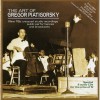



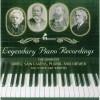
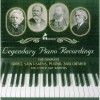
![The 100 Most Beautiful Melodies [CD 3 of 6]](http://static.classicalm.com/repository/disk-cover/small/2912-img1361461642604961.jpg)

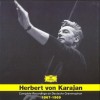








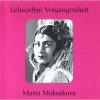


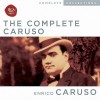
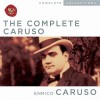
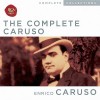
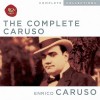
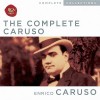


![Rita Streich - The Viennese Nightingale [CD 4 of 8]](http://static.classicalm.com/repository/disk-cover/small/3037-img1372357313822809.jpg)





